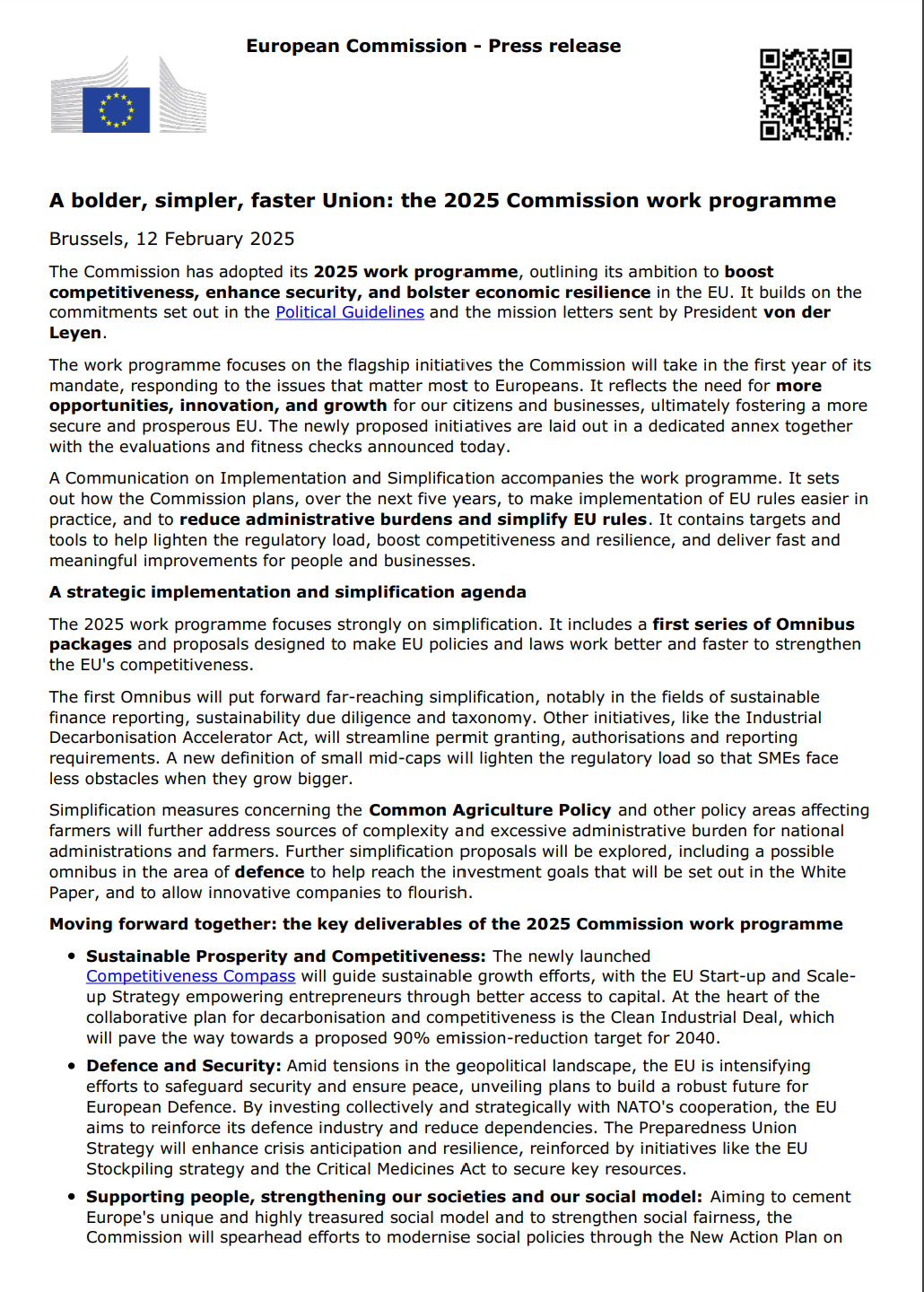On February 12, 2025, the European Commission published its work program for 2025, emphasizing budgetary revision, bureaucracy reduction, and the establishment of a new climate objective for 2040. These initiatives aim to strengthen the competitiveness of the European Union in the face of global challenges.
The new priorities of the European Commission encourage industries to adopt sustainable practices, notably by reducing industrial waste, integrating recycled materials, and optimizing production processes. These actions align with long-term cost reduction objectives and compliance with European environmental regulations.
The Evolution of European Plastics Regulations
The European Union has intensified its measures to reduce the environmental impact of single-use plastics. These regulations directly affect the mold manufacturing industry, which must adapt to recyclable and more sustainable materials.
Key Points:
- SUP Directive (Single-Use Plastics Directive): Restrictions on certain single-use plastics, promoting eco-design.
- Recycled Plastics Regulations: Obligation to incorporate a percentage of recycled materials into production.
- Food Safety and Hygiene Standards: New constraints for molds intended for the food industry.
Consequences for Mold Manufacturing:
- Design adaptation to optimize the use of recycled and biodegradable materials.
- Increased demand for mold technologies compatible with new eco-friendly polymers.
- Development of solutions to reduce the environmental impact of manufacturing processes (waste reduction, energy optimization, new anti-wear coatings).
Why Are These Changes Essential?
By adopting these approaches, companies can improve profitability while enhancing their image as responsible and sustainable actors. This transition meets growing consumer expectations and European regulatory requirements, which are being reinforced each year.
📌 You can access the official press release here: European Commission Press Release
